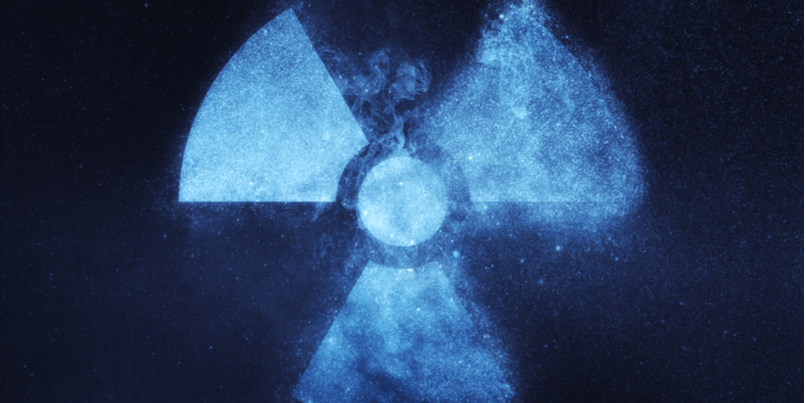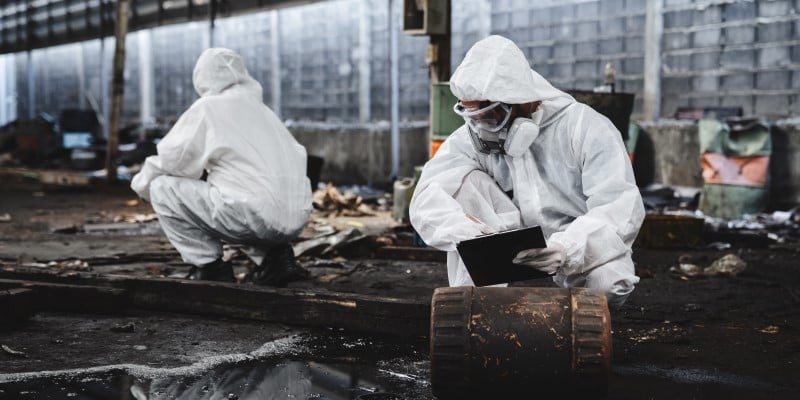 Electronic radiation simulators provide trainees with realistic first-hand experience of handling detector equipment that is identical to that which they will use in the field.
Electronic radiation simulators provide trainees with realistic first-hand experience of handling detector equipment that is identical to that which they will use in the field.
But while the use of simulator detectors can offer significant advantages for both student and instructor, as with any form of training method there may be some compromises.
In this blog post we explore some of the pros and the cons of radiation safety training using simulator detectors.
The Pros
Practicality
Ionizing radiation is a powerful, invisible force - which can make creating realistic scenarios a challenge.
By incorporating the use of simulator detectors into training exercises students have the opportunity to both understand and 'trust' the values displayed on their instruments.
In doing so they can also develop an understanding of the relationship between the measurements on their survey meter and their own personal dose readings as well as the effects of time, distance and shielding.
Safety
Safe and environmentally friendly radiation training systems can be used in a variety of scenarios - whether indoors, outdoors in confined areas or in public spaces.
With simulators incurring zero safety risk there are no Health & Safety restrictions - and the administrative burden for instructors is vastly reduced.
Immersion
Simulator detectors offer the opportunity for a truly authentic and immersive training experience.
Scenarios can be planned to replicate all the crucial elements of real-life incidents, which in turn exposes trainees to the psychological challenges they may well encounter in high-stress incidents.
Repeatability
With the use of simulators, radiation training exercises can be quickly and easily set up - and repeated as many times as required.
Outcomes
Powerful after action review (AAR) ensures that trainees have followed clearly set out procedures and that they understand when mistakes have been made.
Efficiency
Using simulators can provide some significant time-saving advantages for training exercises.
The costly and time-consuming administrative effort normally associated with the transport, deployment and safe handling of radionuclides is completely removed - and the need to secure specialist facilities where ionizing radiation sources is no longer an issue.
The cons
With any form of training, some compromises will inevitably have to be accepted. The key, however, is to find the happy medium between the optimum training outcome and what is practical and achievable.
Dynamic ranges
The dynamic ranges associated with radiation readings are extremely large, which can contribute to challenges in implementing simulations.
Instructor intensiveness
Simulation training can also be very instructor-intensive - with the trainer finding that too much of their attention is focused on creating the “effect” for their student and not enough on observing the student’s actions.
In these cases, alternative techniques which involve the temporary placement of a means to simulate the presence of radioactivity may be more practical - selection of the ideal simulation equipment is essential.
Shielding
It is the simulation of the effects of shielding where there is the potential for the greatest compromise.
The reality is that safe alternatives won't be subjected to the same degree of attenuation (or reduction in force) as actual ionizing radiation.
But new technology now means that shielding can be represented to a realistic enough level to enable students to appreciate its importance for protection.
Instructors will of course need to clarify the differences, where appropriate, for the lesson being delivered - and these are likely to vary depending upon the operational responsibilities of the trainees.
While training with simulator detectors has both advantages and limitations, there is no doubt that it is an effective method of ensuring successful training outcomes while at the same time maintaining the safety of student and instructor.







